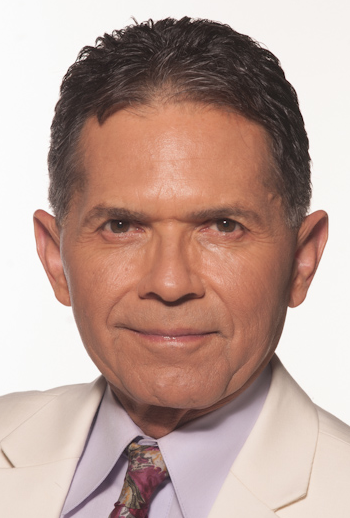Editor’s note: Amigos805 welcomes local guest columns, letters to the editor and other submissions from our readers. All opinions expressed in submitted material are those of the author and do not necessarily represent the viewpoint of Amigos805.
By David Magallanes • Guest contributor

David Magallanes
During the span of years between the mid-1950s and the mid-1960s, my three siblings and I all had the privilege of attending Catholic schools for at least the eight years of elementary education in the Los Angeles area. I say “privilege” because we all received a superb education. We were taught rigorously and at the same time thoroughly indoctrinated in the Catholic faith. Unfortunately (or fortunately, depending on one’s perspective), none of us in our adulthood embraces Holy Mother Church.
We all know why. We are all basically good, responsible people, kind and considerate toward others, just as we were raised. But there was a bad taste left in our mouths after we moved on from our Catholic educations.
We all witnessed abuse, in one form or another, during our years in the Catholic system. If it were to occur today, some of our teachers, both lay and religious, would have ended up behind bars. We saw students being humiliated, slapped and attacked by the adults. I sometimes felt a deep sense of sympathy for my schoolmates who were victims of the emotional and physical violence. One of my sisters was slapped in the face by her Catholic lay teacher, and she continues to feel the sting to this day. Another sister was verbally humiliated in front of her class by the monsignor, who insulted her Mexican heritage. Even now, she feels the shame of that moment.
We never witnessed or even heard about sexual abuse of the students or the altar boys (girls were not allowed near the altar at that time)—the kind of abuse so widely reported in the media, and that severely taints the Church in the eyes of the world, including among the faithful. Apparently, what we were living in was the culture of abuse that existed in different forms and at different intensities throughout the Catholic world. According to our young perceptions, it appeared to us that the Church had license to abuse the children in its care with impunity. The parents seemed to have so much reverence for the priests and nuns that confronting them—or worse yet, challenging them—was inconceivable.
And so the religious at that time and at that place, at least, took advantage of the trust placed in them by the parents and their children. Just seeing a Catholic school brings back sad and traumatic memories to me and my siblings.
I can only hope that modern Catholic schools are more enlightened and protective of their little sheep.
— David Magallanes is a writer, speaker and professor of mathematics.
***
Abuso en la Iglesia Católica
Por David Magallanes • Columnista invitado
Durante el lapso de años entre mediados de la década de 1950 y la década de 1960, mis tres hermanos y yo tuvimos el privilegio de asistir a las escuelas católicas durante al menos los ocho años de educación primaria en el área de Los Ángeles. Digo “privilegio” porque todos recibimos una excelente educación. Fuimos instruidos rigurosamente y al mismo tiempo completamente adoctrinados en la fe católica. Desafortunadamente (o afortunadamente, dependiendo de la perspectiva de cada quien), ninguno de nosotros en nuestra edad adulta acepta a la Santa Madre Iglesia en nuestras vidas.
Todos sabemos por qué. Todos somos básicamente personas buenas, responsables, amables y consideradas para con los demás, así como fuimos criados. Pero la experiencia nos dejó un gusto amargo en la boca después de haber cumplido con nuestra educación católica.
Todos fuimos testigos de abusos, de una forma u otra, durante nuestros años en el sistema católico. Si ocurriera hoy, algunos de nuestros maestros, tanto laicos como religiosos, habrían terminado entre rejas. Vimos a los estudiantes siendo humillados, abofeteados y atacados por los adultos. A veces sentía una profunda simpatía por mis compañeros de clase que fueron víctimas de la violencia emocional y física. Una de mis hermanas recibió una cachetada soltada por su maestra laica católica, y sigue sintiendo el dolor físico hasta el día de hoy. Otra hermana fue verbalmente humillada frente a su clase por el monseñor quien denigró su cultura mexicana. Incluso ahora, ella siente la vergüenza de ese momento.
Nunca presenciamos o siquiera oímos hablar del abuso sexual de los estudiantes o de los monaguillos (en ese momento no se permitía a las niñas acercarse al altar)—el tipo de abuso tan ampliamente divulgado en los medios de comunicación, y que ensucia severamente la reputación de la Iglesia ante los ojos del mundo, incluso entre los fieles. Aparentemente, en lo que estábamos viviendo era en la cultura del abuso que existía en diferentes formas y con diferentes intensidades en todo el mundo católico. De acuerdo con nuestras jóvenes percepciones, parecía que la Iglesia tenía licencia para abusar de los niños a su cuidado con impunidad. Los padres de familia parecían venerar tanto a los sacerdotes y monjas que enfrentarlos—o aún peor, desafiarlos—era inconcebible.
Y entonces los religiosos de esos tiempos y en ese lugar, al menos, aprovecharon la confianza depositada en ellos por los padres y sus hijos. El simple hecho de ver una escuela católica nos trae a mí y a mis hermanos recuerdos tristes y traumáticos.
Solo podemos esperar que las escuelas católicas modernas sean más iluminadas y que protejan mejor a sus pequeñas ovejas.
— David Magallanes es un escritor, orador y profesor de matemáticas.
Editor’s note: Amigos805 welcomes comments on stories appearing in Amigos805 and on issues impacting the community. Comments must relate directly to stories published in Amigos805, no spam please. We reserve the right to remove or edit comments. Full name, city required. Contact information (telephone, email) will not be published. Please send your comments directly to frank@amigos805.com
